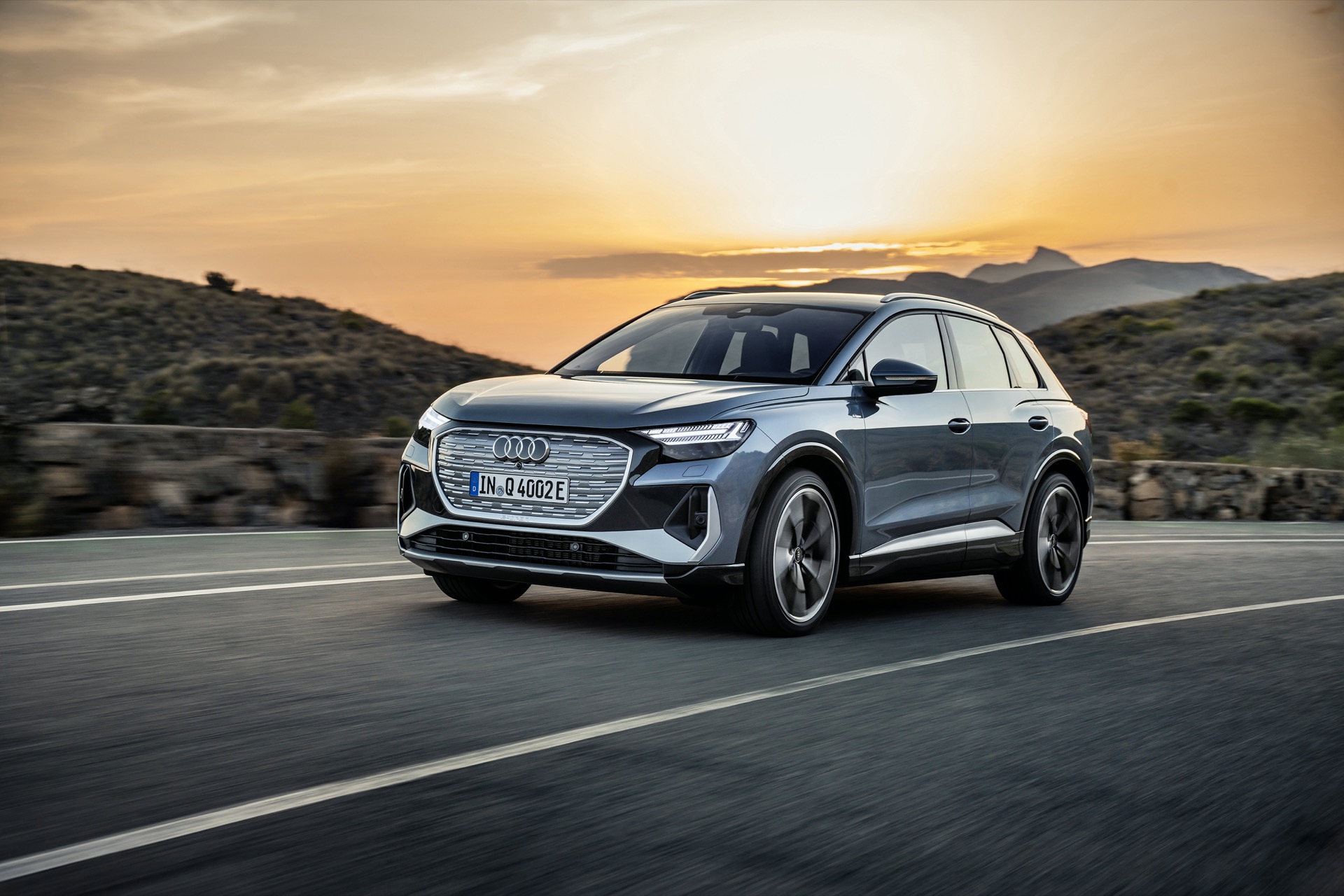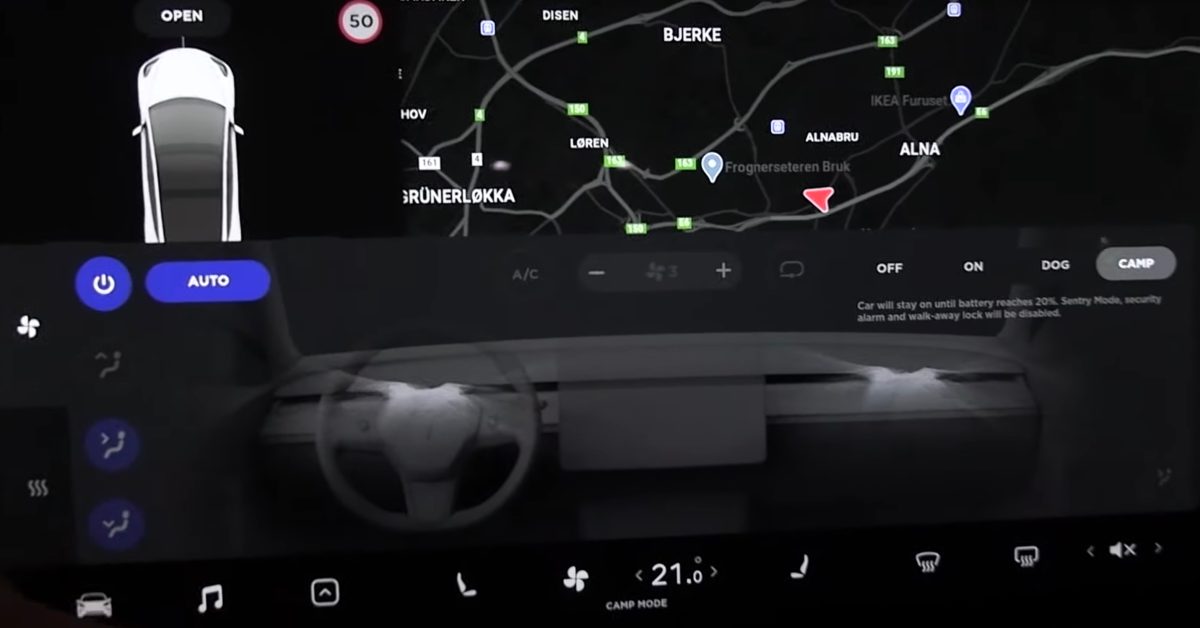You are using an out of date browser. It may not display this or other websites correctly.
You should upgrade or use an alternative browser.
You should upgrade or use an alternative browser.
Heat Pump
- Thread starter AlignTrex
- Start date
- Joined
- May 2, 2022
- Messages
- 5,454
- Location
- Houston, Texas
- Cars
- Lucid Air Grand Touring
- Referral Code
- F0ZQ8SWA
I can speak from my own experience and knowledge..
Lucid Headquarter - Newark, USA
Latitude - 37.52 degrees
Polestar Headquarter - Gothenburg, Sweden
Latitude - 57.70 degrees
Polestar 2 has heat pump, but its car was really designed to be in very cold climate area. Its door handles are protruding unlike modern EVs flushed in to reduce coefficient drag, the reason is for ice may freeze over to cover the door handles.
Every car has its own characteristic, Lucid Air has enough efficiency range and battery to afford battery generated heat. A heat pump is an upgrade in Polestar 2 Plus package, it helps if operating temp is in between -7c to 25c, maybe you gain 10 miles saving in a long distance drive, Polestar 2 only has 260 miles range, it can use that little saving. That little saving, Lucid Air can clearly afford.
Lucid Headquarter - Newark, USA
Latitude - 37.52 degrees
Polestar Headquarter - Gothenburg, Sweden
Latitude - 57.70 degrees
Polestar 2 has heat pump, but its car was really designed to be in very cold climate area. Its door handles are protruding unlike modern EVs flushed in to reduce coefficient drag, the reason is for ice may freeze over to cover the door handles.
Every car has its own characteristic, Lucid Air has enough efficiency range and battery to afford battery generated heat. A heat pump is an upgrade in Polestar 2 Plus package, it helps if operating temp is in between -7c to 25c, maybe you gain 10 miles saving in a long distance drive, Polestar 2 only has 260 miles range, it can use that little saving. That little saving, Lucid Air can clearly afford.
DBV
Active Member
Definitely would be useful and hope they eventually add it.Anyone know why Lucid didn’t go with a heat pump? There is no question that a heat pump setup is more efficient. The range lost in winter could have been minimized if they went with a heat pump.
“Do you use a heat pump with the Air?
We don't currently have a heat pump - but one is coming. Heat pumps are very important.” - Peter Rawlinson.
 topgear-autoguide.com
topgear-autoguide.com
They should have gone with a heat pump from day 1. If they want to penetrate the colder climate buyers it would certainly help. It could have been even more efficient. I would love to see the range difference between an Air with and without heat pump in the future. Even if only 20-30 miles difference, it will add up. Considering they put consideration into adding aero wheel covers to increase efficiency, why would one not have gone with a heat pump as well? My guess is they probably haven’t developed one yet when the Air 1.0 was released.
We don't currently have a heat pump - but one is coming. Heat pumps are very important.” - Peter Rawlinson.
Lucid boss Peter Rawlinson: That's why established manufacturers have a hard time. | CAR ENGINE AND SPORT
First chief engineer for the Model S, now CEO of Lucid: Peter Rawlinson reveals in the interview how to develop the best car in the world.
 topgear-autoguide.com
topgear-autoguide.com
They should have gone with a heat pump from day 1. If they want to penetrate the colder climate buyers it would certainly help. It could have been even more efficient. I would love to see the range difference between an Air with and without heat pump in the future. Even if only 20-30 miles difference, it will add up. Considering they put consideration into adding aero wheel covers to increase efficiency, why would one not have gone with a heat pump as well? My guess is they probably haven’t developed one yet when the Air 1.0 was released.
Can such heat pump be retrofitted?
- Joined
- Jan 4, 2022
- Messages
- 2,484
- Location
- Santa Clarita, CA
- Cars
- 2023 Lucid Air GT
- Referral Code
- AWNJLGKT
Given when the car launched (mid pandemic and shortages everywhere) it could be a simple thing of dropping it because it was too hard to secure. Lucid dropped a number of things in the lead up to launch (motorized doors, air suspension, etc.). Could also be a cost v benefit scenario as well given the range the Lucid goes without a heat pump. Audi has dropped the heat pump from the Q4

 driveteslacanada.ca
driveteslacanada.ca
If it shows up, it will be in the Gravity. SUV's are less efficient so the addition of a heat pump could offset some of the range without needing to add additional battery modules etc.

Audi stops including heat pumps in Q4 e-tron due to semiconductor supply shortages
Audi says they will provide a $1,000 credit at the time of purchase for any Q4 e-tron built without a heat pump.
 driveteslacanada.ca
driveteslacanada.ca
If it shows up, it will be in the Gravity. SUV's are less efficient so the addition of a heat pump could offset some of the range without needing to add additional battery modules etc.
I think the thing to consider is whether there should be a separate HVAC system for the battery and power unit from the car's cabin, or combine them and reduce weight. A heat pump would likely not handle the needs of the power and battery systems, but the HVAC for the power & battery could be extended to service the cabin.
- Joined
- Nov 19, 2021
- Messages
- 6,868
- Location
- Cupertino, CA
- Cars
- Air DE-P, ZR, 21"
- DE Number
- 241
- Referral Code
- Q1BTN5Y3
The air suspension was dropped intentionally; the damped coil suspension resulted in far better handling, so they went with that over the air suspension. That wasn't a supply or cost issue or anything.Given when the car launched (mid pandemic and shortages everywhere) it could be a simple thing of dropping it because it was too hard to secure. Lucid dropped a number of things in the lead up to launch (motorized doors, air suspension, etc.). Could also be a cost v benefit scenario as well given the range the Lucid goes without a heat pump. Audi has dropped the heat pump from the Q4

Audi stops including heat pumps in Q4 e-tron due to semiconductor supply shortages
Audi says they will provide a $1,000 credit at the time of purchase for any Q4 e-tron built without a heat pump.driveteslacanada.ca
If it shows up, it will be in the Gravity. SUV's are less efficient so the addition of a heat pump could offset some of the range without needing to add additional battery modules etc.
- Joined
- May 2, 2022
- Messages
- 5,454
- Location
- Houston, Texas
- Cars
- Lucid Air Grand Touring
- Referral Code
- F0ZQ8SWA
If Lucid does make heat pump on Gravity, I suppose it is for nature of SUV beast, energy is not as efficient as sport sedan and it has huge cabin to fill up air. I’ve been told 3rd row air in Rivian R1S is weak to nonexistent. I would think Lucid adding heat pump will want to gain that 20~30 miles more winter efficiency on that big SUV chassis likely to be 6500 ~ 7000 lbs. R1S has 69 mpg-e EPA rating or 2.27 mi/kWh, but I only got 1.5 mi/kWh real world on 35F weather. I’m sure Gravity being 2 years late reveal will have that metric in mind to top that.Given when the car launched (mid pandemic and shortages everywhere) it could be a simple thing of dropping it because it was too hard to secure. Lucid dropped a number of things in the lead up to launch (motorized doors, air suspension, etc.). Could also be a cost v benefit scenario as well given the range the Lucid goes without a heat pump. Audi has dropped the heat pump from the Q4

Audi stops including heat pumps in Q4 e-tron due to semiconductor supply shortages
Audi says they will provide a $1,000 credit at the time of purchase for any Q4 e-tron built without a heat pump.driveteslacanada.ca
If it shows up, it will be in the Gravity. SUV's are less efficient so the addition of a heat pump could offset some of the range without needing to add additional battery modules etc.
- Joined
- Jan 6, 2022
- Messages
- 172
- Cars
- 2018 Volt, Air GT
As with all automotive systems, it's a balancing act. Heat pumps in automotive applications add complexity and expense while reducing reliability. The greater efficiency that heat pumps offer in moderately cold conditions is offset by Lucid's ample battery capacity. Resistive heat is 100% efficient, reliable, and dead simple mechanically.
My range in cold weather is terrible!I can speak from my own experience and knowledge..
Lucid Headquarter - Newark, USA
Latitude - 37.52 degrees
Polestar Headquarter - Gothenburg, Sweden
Latitude - 57.70 degrees
Polestar 2 has heat pump, but its car was really designed to be in very cold climate area. Its door handles are protruding unlike modern EVs flushed in to reduce coefficient drag, the reason is for ice may freeze over to cover the door handles.
Every car has its own characteristic, Lucid Air has enough efficiency range and battery to afford battery generated heat. A heat pump is an upgrade in Polestar 2 Plus package, it helps if operating temp is in between -7c to 25c, maybe you gain 10 miles saving in a long distance drive, Polestar 2 only has 260 miles range, it can use that little saving. That little saving, Lucid Air can clearly afford.
Agree.As with all automotive systems, it's a balancing act.
To list a few: Soft closing doors, Lucid’s headlight system, powered frunk/trunk, dream drive, etc. all add complexity and expense as well. Does it prevent us from buying the Lucid? No, because most EV buyers want the better and advanced features even if it meant there are dozens of ways to just open a door. As far as the expense, it is passed down to the buyer.Heat pumps in automotive applications add complexity and expense while reducing reliability.
May be true for the 500+ range model, but weight is a killer and not a good answer to future EVs. Weight decreases efficiency as you are probably aware of the physics. At some point the benefits of larger battery will give you diminishing returns.The greater efficiency that heat pumps offer in moderately cold conditions is offset by Lucid's ample battery capacity.
One issue with EVs is the cold. My Touring is not that great in the cold in terms of range. If heat pumps help with cold range then it is worth the complexity. Again, cost is passed down to the buyer.
Resistive heat is 100% efficient, reliable, and dead simple mechanically.
Per the article listed above, CEO of Lucid does say heat pump is coming to future cars and it is “important.”
- Joined
- Jan 6, 2022
- Messages
- 172
- Cars
- 2018 Volt, Air GT
Yes, heat pumps can be great if you get them right and validate them to be durable. Getting to that point isn't easy, cheap, or fast. Read about the ill will generated by Tesla's fiasco with their heat pumps in Canada. Warranty replacement cost of a powered door or hood latch may be a couple hundred dollars. Replacing a shelled out heat pump compressor and the hardware it contaminated costs thousands and takes many labor hours. That cost too would have to be baked into the original vehicle price. I respect that Lucid didn't rush to market with a half-baked solution.Per the article listed above, CEO of Lucid does say heat pump is coming to future cars and it is “important.”
I spent a career designing HVAC systems for industrial/military vehicles where reliability was key, yes, including heat pumps.
MacDriver
New Member
There is the same discussion about my Mercedes EQS. I think that this is not a problem for long distance trips. For short trips it is less efficient. But from a range point of view it actually doesn’t matter.Anyone know why Lucid didn’t go with a heat pump? There is no question that a heat pump setup is more efficient. The range lost in winter could have been minimized if they went with a heat pump.
- Joined
- Jan 6, 2022
- Messages
- 172
- Cars
- 2018 Volt, Air GT
True. The biggest load on a vehicle's climate system comes when changing the cabin temperature from either high or low heat to a comfortable setting. Moderating your climate setting will reduce the energy required, just as it does in your home. Maintaining a comfortable setting takes far less energy than the pull-down (-up). For whatever it's worth, having a soft headliner reduces that load greatly in both summer and winter, but I like the glass as it is.There is the same discussion about my Mercedes EQS. I think that this is not a problem for long distance trips. For short trips it is less efficient. But from a range point of view it actually doesn’t matter.
LCIDdreams
Active Member
- Joined
- Apr 8, 2022
- Messages
- 633
- Cars
- Lucid Air Pure…eventually
Heat pumps can achieve up to 300% efficiency.As with all automotive systems, it's a balancing act. Heat pumps in automotive applications add complexity and expense while reducing reliability. The greater efficiency that heat pumps offer in moderately cold conditions is offset by Lucid's ample battery capacity. Resistive heat is 100% efficient, reliable, and dead simple mechanically.
- Joined
- Jan 6, 2022
- Messages
- 172
- Cars
- 2018 Volt, Air GT
Yes, in ideal conditions. In low ambient conditions they can be much less efficient than simply burning watts over a resistor. My understanding of the Tesla system is that in low ambient conditions they simply run excess current through the front motor stator to heat the coolant used to evaporate refrigerant for the heat pump. If this is true it would be incredibly wasteful. A simple immersion heater would bleed far less heat to the environment, but reliable-ish sources say they simply use the stator.Heat pumps can achieve up to 300% efficiency.

A comparison of a Tesla Model 3 with a heat pump to one without shows impressive results
We compare a newer Model 3 that has a heat pump with an older one that doesn't, and the former shows impressive results.

Winter & Cold Weather EV Range Loss in 7,000 Cars
The bad news is that all electric cars experience some degree of range loss in cold weather. The good news is that this range loss is temporary.
Similar threads
- Replies
- 155
- Views
- 14K
- Replies
- 1
- Views
- 6K
- Sticky
- Replies
- 0
- Views
- 6K
